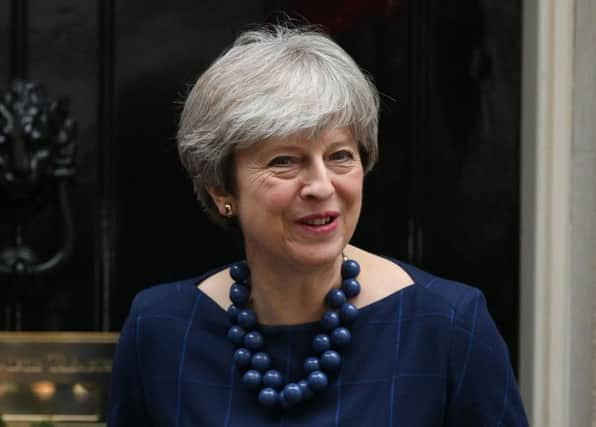Theresa May's authority has been undermined again


By arguing and refusing to move jobs the health secretary, Jeremy Hunt, further undermined the authority of an already weak prime minister. One surprise was that the DEFRA Secretary, Michael Gove, was never in the running for a move, and did not appear to be orchestrating to secure a more significant role in government. It is hard to believe that such a politically big Brexit beast will be happy to stay in a low key department. For farmers the big questions is whether it is good news, for now, that Gove is staying where he is.
On balance the answer is probably yes, but with a big caveat that farmers should not fall into the trap of believing their interests are central to his plans on the future of agricultural support. This is particularly important here now, as we pass the one-year anniversary without having a local minister responsible for agriculture. There are no signs of that changing any time soon. On that basis what is decided in London will become the basis of policy here to be implemented by civil servants. They do not have the power to influence the political debate at Westminster. Without a local or direct rule minister here it will not be possible to influence core policy decisions. The government has confirmed its willingness to devolve agricultural support policies, but with no-one at the negotiating table it is difficult to see how we can gain.
Advertisement
Advertisement
That means we face a danger of being handed policies that are effectively solutions to English problems. A prime example is the emphasis Gove put on access to the countryside and the right to roam. His concept of basing farm support on the delivery of environmental goals needs to be built on local rather than national foundations. But without a political input from here it is hard to see how this can happen. Access to the countryside is not an issue here. What is needed to deliver gains for the countryside and wildlife habitats will be very different for a small farm, livestock dominated agriculture in Northern Ireland than is the case elsewhere in the UK.
With comments from the prime minster this week on a new green initiative, based around reducing plastic waste, it is clear the government sees green policies as a way to attract votes.
Whether it will manage to put clear blue water between itself and other parties is open to question. This confirms that that ultra-green support model for agriculture Gove wants is in line with Conservative party policy. Indeed it seems he really is fundamentally committed to green ideas. Farmers should have no false hopes that things will change as we move towards the detail of new support plans. The government sees political merit in pursuing a green agenda. It did this in the past with ‘big green’ ideas like wind turbines and other forms of renewable power. Now it is moving to the small scale, with plans for reducing plastic waste and recycling coffee cups. An agricultural policy that rewards farmers solely for environmental delivery is 100 per cent in line with that thinking.
The days of food production being seen as vital for the nation are coming to an end. This will be the big point of difference between the CAP in the EU-27, after 2020, and the agricultural policy we will have for the UK. This is a big change of emphasis and it is one many farmers will find hard to accept. It is also a change that could see farmers facing more rather than less regulation. Think of some of the most onerous parts of the CAP in terms of excessive regulation, and they relate to issues around cross compliance and greening – both of which are linked to environmental delivery. If the basis of the UK support model is environmental delivery that has to mean similar regulations. It is ironic that an escape from greening in particular was one of the things that persuaded farmers to vote to leave the EU. After this week’s green announcements from the government we know more about its direction of travel. It is up to farmers to decide whether what will be on offer will be better or worse than the CAP, although there is now nothing they can do to change the path we are on.